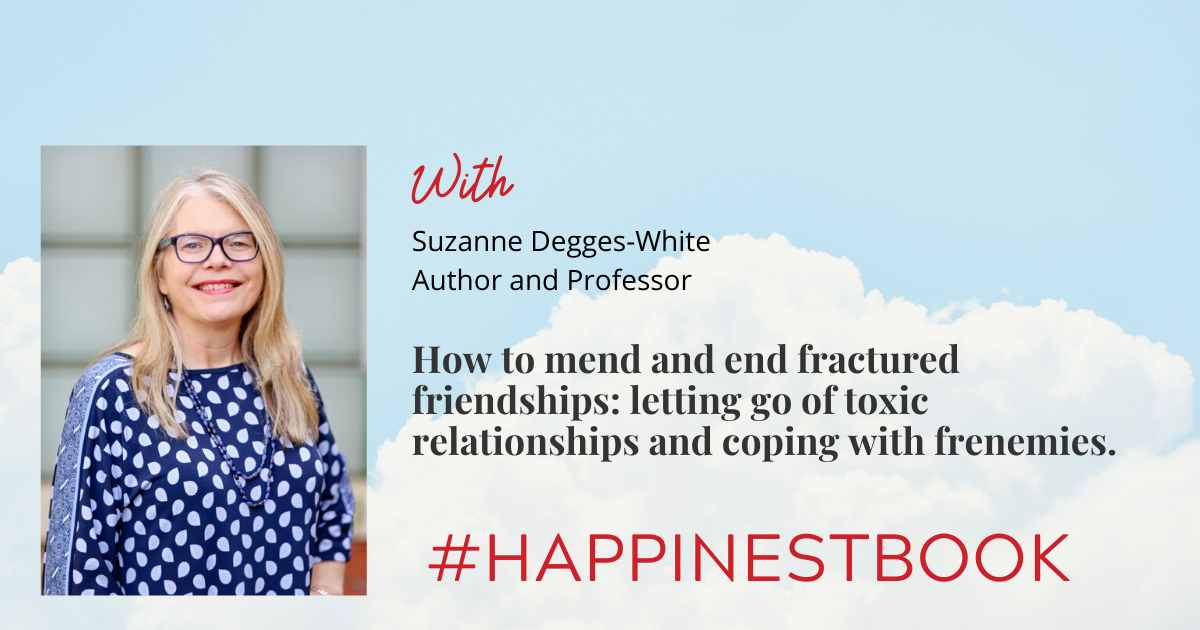Navigating the Ups and Downs of Friendships:
Suzanne Degges-White is professor of counseling, adult and higher Education at Northern Illinois University. Her research interests include intimate relationships, friendship and motherhood. Suzanne is also a blogger for Psychology Today. She is author of Toxic Relationships: Knowing the Rules and Dealing with the Friends who Break Them.
If you like what you hear, I’d really appreciate it if you would subscribe, rate and review the show. It’s easy to do on Apple Podcasts, or you can go directly to the podcast section of my website at judyhollandauthor.com.
In her book Toxic Relationships, Suzanne shows how broken friendships can be mended and bad friendships ended. What does it take to be a good friend? How can you identify bad friends? How do you move forward when a friendship turns sour? How do you decide when it’s time to let go of a relationship that is bringing you down instead of keeping you afloat? Stay tuned as we discuss these critical issues with Suzanne.
What you’ll learn about in this episode:
- As we enter the empty nest, we no longer tolerate “the fluff” relationships we had before.
- Toxic friendships do not feed our souls, they vex and agitate us.
- As we age, we seek more meaningful connections with others.
- As hard as it is to see your last child leave, letting go can really rewarding.
- Focus on relationships that bring you the most joy. A lack of respect and trust can ruin a friendship.
- “Friendships are every bit as vital and as important to us as romantic relationships are,” Degges-White says. No one person can fulfill all of our needs.
- Friends can lighten our emotional burdens: “A burden shared is a burden halved,” says Degges-White.
- When a friend takes what we’ve shared in confidence and broadcasts it, that is a breach of trust and can be the breaking point of a friendship.
- Some people can’t keep secrets. Gossip was once a positive form of communication to keep friends and family safe. For example, one person might issue a warning about poisonous berries, which would help the rest of the village. In modern times, many people gossip in a salacious or judgmental way.
- Good relationships are reciprocal. Take the time to build relationships that reflect who you truly are.





